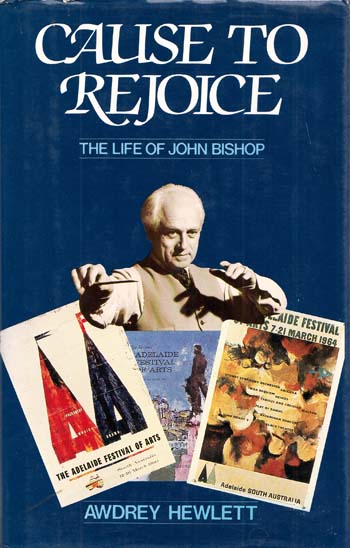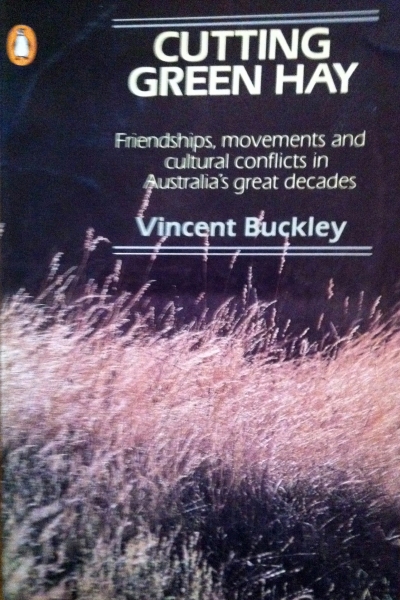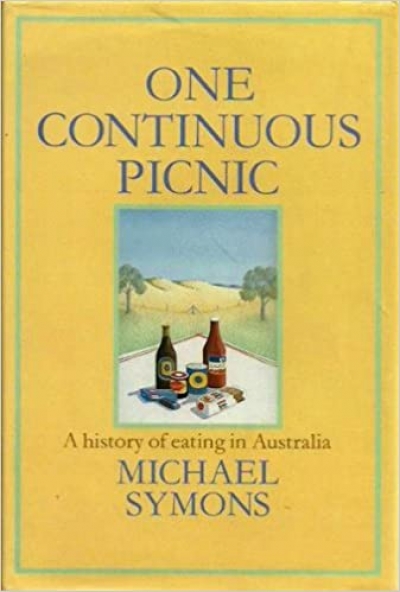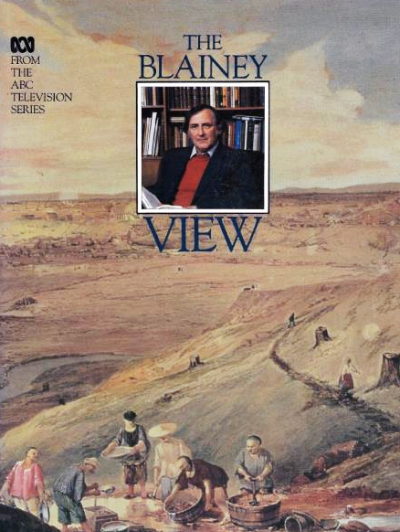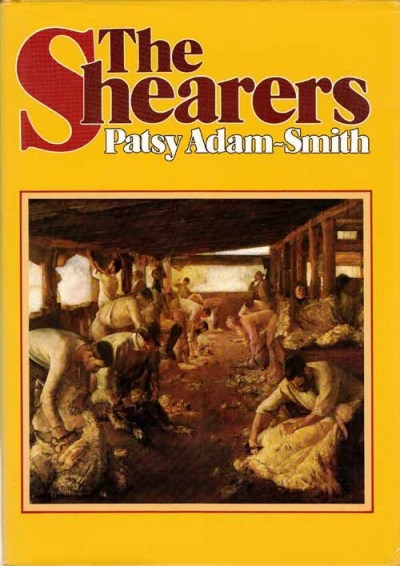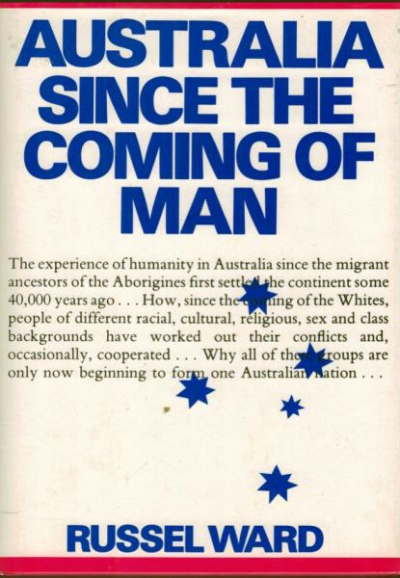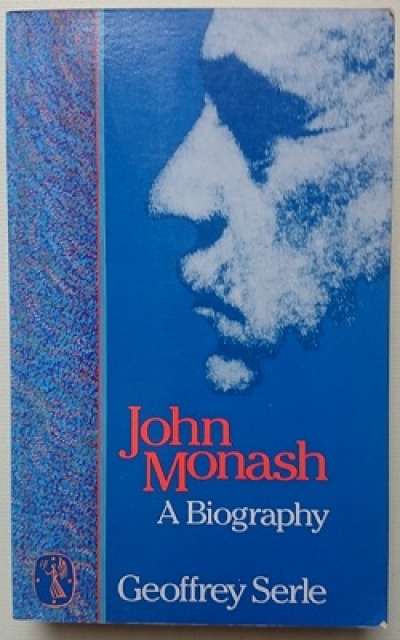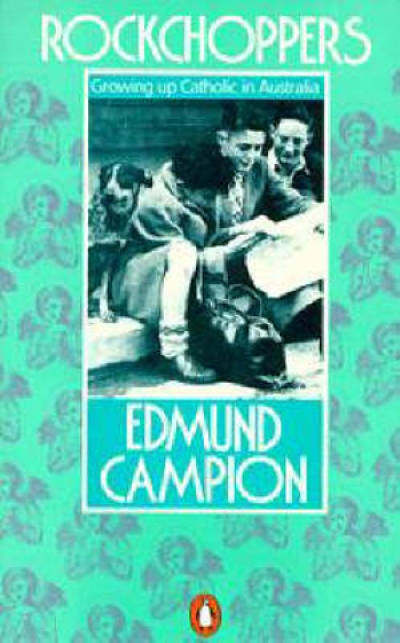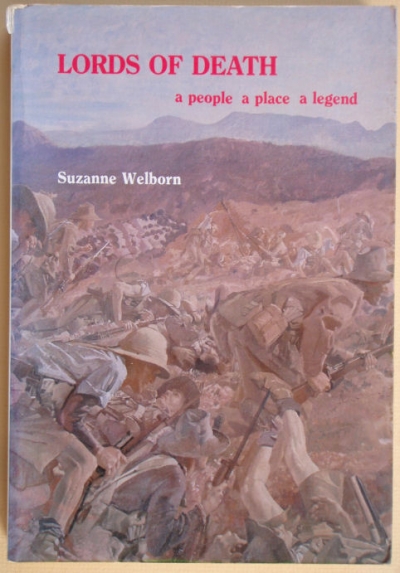Australian History
Cause to Rejoice by Audrey Hewlett & Playing for Australia by Charles Buttrose
There is a long tradition in Australian music publishing that only the worst will do. In the era of long-winded and Latinised Victorian histories and reminiscences of old colonists, the music sector easily bested the rest for pontification and inaccuracy. In the thirties, when even journalistic standards were at an all-time local low, the few music histories and biographies that managed to find their way into print, often via the vanity presses, were tediously pedantic. The forties actually improved on matters, due to war-time isolation and a new awareness of music as propaganda; but the fifties produced the most conservative of demi-books, their authors still mentally located somewhere on their knees before a middle European iconostasis that concealed, artistically, a good deal of ritualised nonsense in the name of cultural superiority.
... (read more)Cutting Green Hay: Friendships, movements and cultural conflicts in Australia's great decades by Vincent Buckley
On his first day at St Patrick’s, East Melbourne, Vincent Buckley was ‘flogged and flogged’ by a Jesuit priest in ‘an incompetent fury’. It is an experience that many of his readers will easily recognise, though their remembered lambastings were more likely to have been incurred at the hands of the Brothers and, unlike Buckley’s, would have been a continuing feature of school life.
... (read more)One Continuous Picnic: A history of eating in Australia by Michael Symons
Adam Smith’s economics foresaw that capital would seek new ways to save us kitchen time, to brighten the dinner table and to stop us for a roadside snack, but each time an investment saved a minute here, lifted a moment there, filled a gap in the market, it separated eaters further from the source of food. The ‘middleman’ slandered agrarian values, insulated us from the seasons, took away the diversity of distance, compromised quality for price, and then distracted us from the deterioration with the baits of cheapness, convenience and gourmet entertaining.
That statement on page 229 more or less summarises Michael Symons’s book and indicates several of its basic muddles. Yet in many ways it is an invaluable pioneering history and, if it often exasperates, it at least leads the reader to some stimulating and constructive fury, in a very enjoyable way.
... (read more)Geoffrey Blainey must be Australia’s bestselling historian by a very long way. His audience is far wider than Manning Clark’s for instance: and far less critical. Clark is periodically savaged by packs so frenzied they often seem unable to recognise the nature of the quarry. The difference of course is a matter of both style and substance. Clark, as an early critic once said, is ‘full of great oaths and bearded like the pard’, and he has not changed his fundamental spots. Blainey’s picture is inserted in the barren landscape on the front cover of this book, all warm and friendly; not a Jeremiah, but a kindly tribal elder who will unravel your historical landscape sotto voce, and with perfect equanimity. You can step into your past with Geoffrey Blainey and know you’ll be safe. He’s just about the friendliest historian imaginable.
... (read more)The Shearers by Patsy Adam-Smith is worth a place in the best of libraries if only for its superb collection of photographs and reproductions – 291 of them! She is to be commended for including reproductions of an 1891 ‘Loyalty’ certificate, an 1890 Queensland Shearers’ Union ticket and three ‘shearing ticket’ versions of the Amalgamated Workers’ Union. I wish I could claim possession of an original of these. I do, however, have a complete collection of every membership certificate issued in what is now called The Australian Workers’ Union right from its very beginning in 1886, when it was called the Australasian Shearers’ Union.
... (read more)Australia Since the Coming of Man by Russel Ward & New History edited by G. Osborne and W.F. Mandie
Russel Ward’s new book is a revision of History, which he published in 1965, mainly for an American audience. In fact, it was read more in Australia and now he has extended the work, put in more detail, and, presumably in response to recent developments, included some cursory glances at the doings of Aborigines, explorers, and the female half of the Australian people.
... (read more)Poor John Monash has waited a long time. Before he died in 1931, he clearly hoped for a friendly posthumous biography. He destroyed his collection of erotica and some extramarital love letters. This was characteristically called ‘Emergency Action’. Less characteristically, he instructed his son-in-law and executor, Gershon Bennett, not to ‘preserve indefinitely’ the enormous collection of letters, diaries, cuttings, etc.
... (read more)Rock Choppers: Growing up Catholic in Australia by Edmund Campion
The decisive influence on Australian politics and culture has been the fact that our society has always included a large minority who, even if they considered themselves British, were definitely Irish and not English. The fact that this minority has been Catholic and, as a result, has felt itself discriminated against, has shaped the church into an Irish rather than a European mode, so that, as Campion points out, not only was to be Irish to be Catholic, but to be Catholic was to be Irish.
... (read more)These three books on Aboriginal European relations are a reminder that the process of rewriting the history of contact of Australian Aboriginals (or should one say Aboriginal Australians?) has come a long way since C.D. Rowley’s The Destruction of Aboriginal Society, the work which started it all twelve years ago. Each is important in its own way. Lyndall Ryan’s book (The Aboriginal Tasmanians, 315 p., $22.50) demolishes once and for all what the author calls ‘the myth of the last Tasmanian’: the still widely held belief that Tasmanian Aboriginals perished in 1876 when Truganini died in Hobart. Judith Wright’s work (The Cry For The Dead, OUP, 301 p., $19.95 hb), although essentially a story of the tragic struggle or the author’s squatter forbears, is one of the few attempts ever made to incorporate Aboriginal perspective into the history of pastoral expansion, to run the white and black ‘versions’ of events side by side. Henry Reynolds’s epoch-making book (The Other Side of the Frontier, Penguin, 255 p., $6.95 pb, first published in hardback by History Department, James Cook University, 216 p., $7.50 plus postage) documents and interprets’ some of the Aboriginal responses to European invasion and settlement during the nineteenth century. All three are well written, although The Cry for the Dead is at times a bit irritating and difficult to follow, largely because of the lack of appropriate maps. All attack traditional wisdom and are therefore inescapably political, dealing as they do with highly emotional issues which have aroused a great deal of passion ever since 1788.
... (read more)This book is concerned essentially with the impact of the environment upon Europeans in Australia. It sets out to test C.E.W. Bean’s thesis that during the Great War the most effective Australian soldiers came from the bush. It does this in relation to men from Western Australia, arguing that the West was one of the most predominantly bush areas of Australia, and therefore that there, if anywhere, the influence of the bush should show up in the achievements of soldiers.
... (read more)

